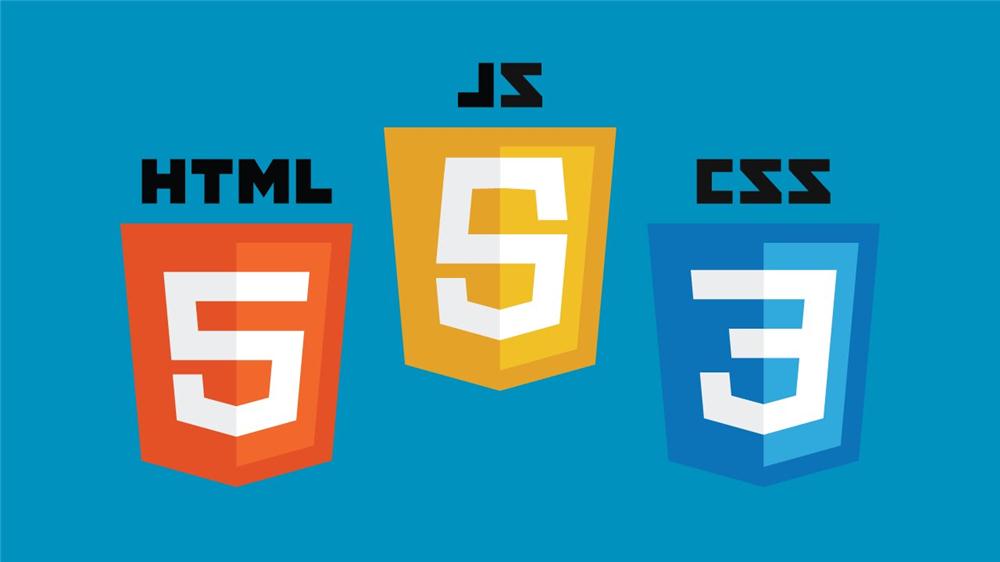Recommend examples of how to use drag and drop elements
In the past few days, I have been working on an additional function for dragging elements, which is to align to the grid. In fact, it means determining the initial position of the element, and then moving the element a fixed distance each time when dragging it. Allows elements to be aligned within the grid. First, I will show the renderings, and then I will explain the details in detail and make a gif. You can see that each element moves according to the minimum unit distance. And each time the elements are aligned to the grid. First, I will explain the ideas and details based on the demo, and the demo code will be given later. 1. Determine the minimum unit of each movement of the element (10px and 10px in the demo), that is, each horizontal or vertical displacement is 10px. Laying a layer of grid background is to help us see the effect better (each grid in the demo is also 10px * 10px). 2. In order to see the effect more clearly, the width and height of the element (both are multiples of 10px) and the default position (also a multiple of 10px) are initialized. For example: the width and height of the element are 50px * 50px, and the initial position of the element is 0xp * 0px. The advantage of this is that when it is initially loaded, it can ensure that the element covers an integer number of small grids (that is,
1. JavaScript implements dragging elements to align to the grid (each move Fixed distance)
#Introduction: In the past few days, I have been working on an additional function for dragging elements, which is to align to the grid. In fact, it is to determine the initial position of the element, and then When dragging an element, it moves a fixed distance each time so that the elements can be aligned within the grid. First, I will show the effect diagram, and then I will explain the details in detail and make a gif. You can see that each time the element moves, It is moved according to the minimum unit distance, and each element is aligned to the grid
2. HTML5 actual combat and analysis of native drag (three dataTransfer objects)

##Introduction: Although native dragging is implemented through dragstart, drag and dragend events, this is just dragging. , there are still some drag and drop problems in IE6 and IE7, and data exchange is not implemented. In order to realize the exchange of data, IE5 introduces the dataTransfer object. The dataTransfer object is an attribute of the event object and is used to place the dragged element. The target transfers data in string format. Because it is a property of the event object, the dataTransfer object can only be accessed in the event handler of the drag and drop event. In the event handler, you can use the properties and methods of this object to complete the drag and drop. Function.
##3.Mouse drag element copy and write effect based on jquery_jquery##Introduction : Implementation code for copying and writing effects of mouse dragging elements based on jquery. Friends who need it can refer to it
##4. JQuery dragging elements to change the size. Code_jquery
#Introduction: "Element dragging to change size" is actually the same principle as "element dragging". The source code prototype is attached below. Once you understand the principle, you can expand other With practical application, the idea becomes much simpler and clearer
5. jquery web element drag and drop plug-in effect and implementation_jquery
 Introduction: Effect description: With the existing css style, after loading the plug-in, web page elements can be dragged and dropped in the window at will, and the original The effect options of positional translucency and dragging translucency can be selected as needed. In addition, when there are multiple draggable elements on the page, you can load another plug-in for setting z-index to simulate clicking on the top of the windows window. Effect.
Introduction: Effect description: With the existing css style, after loading the plug-in, web page elements can be dragged and dropped in the window at will, and the original The effect options of positional translucency and dragging translucency can be selected as needed. In addition, when there are multiple draggable elements on the page, you can load another plug-in for setting z-index to simulate clicking on the top of the windows window. Effect.
##6. JS drag and drop plug-in implementation steps_javascript skills
#Introduction: The implementation of JS drag-and-drop plug-in is mainly introduced from six aspects: 1. The principle of js drag-and-drop plug-in, 2. The most basic effect achieved based on the principle, 3. Code abstraction and optimization, 4. , Extension: effective drag-and-drop elements, 5. Performance optimization and summary, 6. jquery plug-in
, friends in need can refer to the following 
javascript - JS drag and drop element problem What is the best drag sorting effect achieved by HTML5? javascript - Can drag and drop in H5 modify the effect of following the mouse? How to modify?
The above is the detailed content of Recommend examples of how to use drag and drop elements. For more information, please follow other related articles on the PHP Chinese website!

Hot AI Tools

Undresser.AI Undress
AI-powered app for creating realistic nude photos

AI Clothes Remover
Online AI tool for removing clothes from photos.

Undress AI Tool
Undress images for free

Clothoff.io
AI clothes remover

Video Face Swap
Swap faces in any video effortlessly with our completely free AI face swap tool!

Hot Article

Hot Tools

Notepad++7.3.1
Easy-to-use and free code editor

SublimeText3 Chinese version
Chinese version, very easy to use

Zend Studio 13.0.1
Powerful PHP integrated development environment

Dreamweaver CS6
Visual web development tools

SublimeText3 Mac version
God-level code editing software (SublimeText3)

Hot Topics
 1663
1663
 14
14
 1420
1420
 52
52
 1315
1315
 25
25
 1266
1266
 29
29
 1239
1239
 24
24
 Demystifying JavaScript: What It Does and Why It Matters
Apr 09, 2025 am 12:07 AM
Demystifying JavaScript: What It Does and Why It Matters
Apr 09, 2025 am 12:07 AM
JavaScript is the cornerstone of modern web development, and its main functions include event-driven programming, dynamic content generation and asynchronous programming. 1) Event-driven programming allows web pages to change dynamically according to user operations. 2) Dynamic content generation allows page content to be adjusted according to conditions. 3) Asynchronous programming ensures that the user interface is not blocked. JavaScript is widely used in web interaction, single-page application and server-side development, greatly improving the flexibility of user experience and cross-platform development.
 The Evolution of JavaScript: Current Trends and Future Prospects
Apr 10, 2025 am 09:33 AM
The Evolution of JavaScript: Current Trends and Future Prospects
Apr 10, 2025 am 09:33 AM
The latest trends in JavaScript include the rise of TypeScript, the popularity of modern frameworks and libraries, and the application of WebAssembly. Future prospects cover more powerful type systems, the development of server-side JavaScript, the expansion of artificial intelligence and machine learning, and the potential of IoT and edge computing.
 JavaScript Engines: Comparing Implementations
Apr 13, 2025 am 12:05 AM
JavaScript Engines: Comparing Implementations
Apr 13, 2025 am 12:05 AM
Different JavaScript engines have different effects when parsing and executing JavaScript code, because the implementation principles and optimization strategies of each engine differ. 1. Lexical analysis: convert source code into lexical unit. 2. Grammar analysis: Generate an abstract syntax tree. 3. Optimization and compilation: Generate machine code through the JIT compiler. 4. Execute: Run the machine code. V8 engine optimizes through instant compilation and hidden class, SpiderMonkey uses a type inference system, resulting in different performance performance on the same code.
 JavaScript: Exploring the Versatility of a Web Language
Apr 11, 2025 am 12:01 AM
JavaScript: Exploring the Versatility of a Web Language
Apr 11, 2025 am 12:01 AM
JavaScript is the core language of modern web development and is widely used for its diversity and flexibility. 1) Front-end development: build dynamic web pages and single-page applications through DOM operations and modern frameworks (such as React, Vue.js, Angular). 2) Server-side development: Node.js uses a non-blocking I/O model to handle high concurrency and real-time applications. 3) Mobile and desktop application development: cross-platform development is realized through ReactNative and Electron to improve development efficiency.
 Python vs. JavaScript: The Learning Curve and Ease of Use
Apr 16, 2025 am 12:12 AM
Python vs. JavaScript: The Learning Curve and Ease of Use
Apr 16, 2025 am 12:12 AM
Python is more suitable for beginners, with a smooth learning curve and concise syntax; JavaScript is suitable for front-end development, with a steep learning curve and flexible syntax. 1. Python syntax is intuitive and suitable for data science and back-end development. 2. JavaScript is flexible and widely used in front-end and server-side programming.
 How to Build a Multi-Tenant SaaS Application with Next.js (Frontend Integration)
Apr 11, 2025 am 08:22 AM
How to Build a Multi-Tenant SaaS Application with Next.js (Frontend Integration)
Apr 11, 2025 am 08:22 AM
This article demonstrates frontend integration with a backend secured by Permit, building a functional EdTech SaaS application using Next.js. The frontend fetches user permissions to control UI visibility and ensures API requests adhere to role-base
 From C/C to JavaScript: How It All Works
Apr 14, 2025 am 12:05 AM
From C/C to JavaScript: How It All Works
Apr 14, 2025 am 12:05 AM
The shift from C/C to JavaScript requires adapting to dynamic typing, garbage collection and asynchronous programming. 1) C/C is a statically typed language that requires manual memory management, while JavaScript is dynamically typed and garbage collection is automatically processed. 2) C/C needs to be compiled into machine code, while JavaScript is an interpreted language. 3) JavaScript introduces concepts such as closures, prototype chains and Promise, which enhances flexibility and asynchronous programming capabilities.
 Building a Multi-Tenant SaaS Application with Next.js (Backend Integration)
Apr 11, 2025 am 08:23 AM
Building a Multi-Tenant SaaS Application with Next.js (Backend Integration)
Apr 11, 2025 am 08:23 AM
I built a functional multi-tenant SaaS application (an EdTech app) with your everyday tech tool and you can do the same. First, what’s a multi-tenant SaaS application? Multi-tenant SaaS applications let you serve multiple customers from a sing




